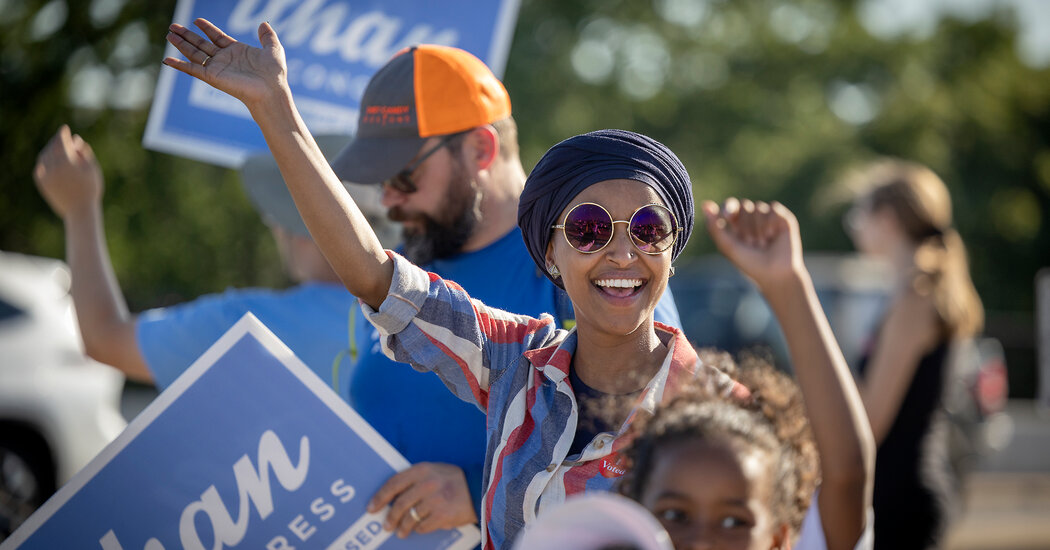Two years ago, Representative Ilhan Omar of Minnesota easily survived her Democratic primary by beating back a fellow progressive. Even though she had
Two years ago, Representative Ilhan Omar of Minnesota easily survived her Democratic primary by beating back a fellow progressive. Even though she had become a national lightning rod for attacks from the right and faced staunch opposition from pro-Israel groups that spent millions of dollars in hopes of defeating her, she won her 2020 race by more than 35,000 votes.
But on Tuesday, Ms. Omar edged out only a narrow primary victory against a centrist Democrat, coming within 2,500 votes of losing her seat. “Tonight’s victory is a testament to how much our district believes in the collective values we are fighting for and how much they’re willing to do to help us overcome defeat,” Ms. Omar posted on Twitter.
To her supporters and her critics, the tight race was a sign that her strong support of a progressive push to overhaul the Minneapolis Police Department had cost her votes. That push, which took the shape of a ballot measure last year, followed the 2020 killing of George Floyd in police custody in Minneapolis, which set off protests and nationwide calls for racial justice and police reform. More than two years later, the issue of policing and accountability continues to deeply divide Democrats.
“Most voters, when they call 9-11, they want the police to come right away,” said Michael Meehan, a Democratic strategist, adding that Ms. Omar’s narrow win showed the “punitive power” of the backlash against calls to “defund the police” across the country.
For many in Minneapolis, the clashes over policing between Ms. Omar and her main Democratic rival in the primary, Don Samuels, a former Minneapolis city councilman and school board member, were a continuation of last year’s battle over the ballot measure to replace the Minneapolis Police Department with a new Department of Public Safety.
Ms. Omar supported the measure, which grew out of the outrage over Mr. Floyd’s murder, when Minneapolis became the center of a push to defund or abolish the police. But moderate Democrats, including Mayor Jacob Frey, called for improving the current department, as an increase in homicides sparked concern.
In the end, Minneapolis voters struck the amendment down.
Mr. Samuels, who campaigned to defeat the ballot measure and who had the backing of Mr. Frey in the primary, had criticized Ms. Omar for her support of the “defund police” movement. After he conceded his race, Mr. Samuels contended that his opponent was beatable. “If this was the general election, no doubt that we would have won this race,” he said.
This time, pro-Israel groups declined to get involved.
The political action committee affiliated with the American Israel Public Affairs Committee did not respond to requests for comment. They and other groups have opposed Ms. Omar in the past after she made comments about the influence of pro-Israel donors on lawmakers. Her fierce and persistent criticism of Israel has exposed broader tensions between younger Democrats who accuse the Jewish state of human rights abuses and older Democrats who stand behind it.
On Wednesday, Ms. Omar’s progressive supporters were feeling relieved, yet also dispirited.
“I feel like it shouldn’t have been that close,” said D.A. Bullock, a filmmaker and Minneapolis community activist who supported her campaign. “It was almost like trying to bring her to heel rather than push for better policy.”
Sabrina Mauritz, a field director with TakeAction Minnesota, said Ms. Omar won despite the broader backlash because she has been an effective local leader. “The constant fear mongering — it is meant to scare people,” Ms. Mauritz said, referring to the attacks on Ms. Omar and efforts at police reform.
www.nytimes.com
